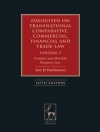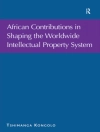This book identifies the most effective water policy tools and innovations, and the circumstances that foster their successful implementation by taking a comparative look at a world-leading ‘laboratory’ of water law and governance: Australia. In particular, the book analyses Australia’s 20-year experience implementing a hybrid governance system of markets, hierarchical regulation, and collaborative integrated water planning.
Australia is acknowledged as a world leader in water governance reform, and an examination of its relatively mature water law and governance system has great significance for many international academics and jurisdictions. This book synthesises practical lessons and theoretical insights from Australia, as well as recommendations from comparative analysis with countries such as the United States to provide useful guidance for policymakers and scholars seeking to apply water instruments in a wide range of policy contexts. The book also advances our understanding of water and broader environmental governance theory and is a valuable reference for scholars, researchers and students working in law, regulation and governance studies – especially in the field of water and environmental law.
Chapter “Lessons from Australian water reforms: Indigenous and environmental values in market-based water regulation” is available open access under a Creative Commons Attribution 4.0 International License via link.springer.com.
Mục lục
Chapter 1: Water Law and Governance: Current Issues and Challenges.- Chapter 2: Future Water Markets? Overcoming Structural Impediments, ‘Crowding Out’ and Implementation Failures.- Chapter 3: The Ebb and Flow of Property Rights in Water Entitlement.- Chapter 4: Markets, Third-party Impacts and Environmental Watering in the Murray-Darling Basin.- Chapter 5: Water Allocation Planning: New Lines of Flight.- Chapter 6: Environmental Water Transactions, Non-governmental Organisations and Regulatory Enterprise: Re-imagining Buybacks in Australia.- Chapter 7: Public Interest Standing in Water Law: An Important Regulatory Mechanism.- Chapter 8: Groundwater and Cumulative Impacts: A View through Time to a Future Regulatory Research and Reform Agenda.- Chapter 9: Institutional Challenges to Implementing a Portfolio Approach in Urban Water Governance Paradigms.- Chapter 10: Adaptive Management and Extractive Industries: Adapting the Management or the Regulation?.- Chapter 11: Water Reform in Australia through the Lens of Comparative Law.- Chapter 12: Interjurisdictional Water Resource Governance in Transboundary and Federal Systems: Comparative Lessons from North America and the European Union.- Chapter 13: Australia Wet or Dry: North or South.- Chapter 14: The Relevance of the National Water Initiative outside the Murray-Darling Basin.- Chapter 15: Creating the Next Generation of Water Governance.- Chapter 16: Reforming Water Law and Governance.
Giới thiệu về tác giả
Cameron Holley is an associate professor of law at UNSW Sydney. He publishes widely in the areas of environmental law, natural resources law, and water law, with a focus on regulation and governance. An empirical researcher, he has worked closely with Australian and international government and non-government organisations on a range of environmental and natural resource management research projects. His current research agenda is centred on the legal and governance aspects of water compliance and enforcement, the Anthropocene and the energy, water, food nexus.
Darren Sinclair is an associate professor at the Institute for Governance and Policy Analysis, University of Canberra. His expertise lies in the fields of environmental policy, regulation and governance, and occupational health and safety regulation and governance in the mining sector. He has published widely on these topics and has also been a consultant to various government agencies and industry. Currently, he is engaged in research on water regulation and governance, the regulation of mercury emissions and climate change governance in the financial sector.












